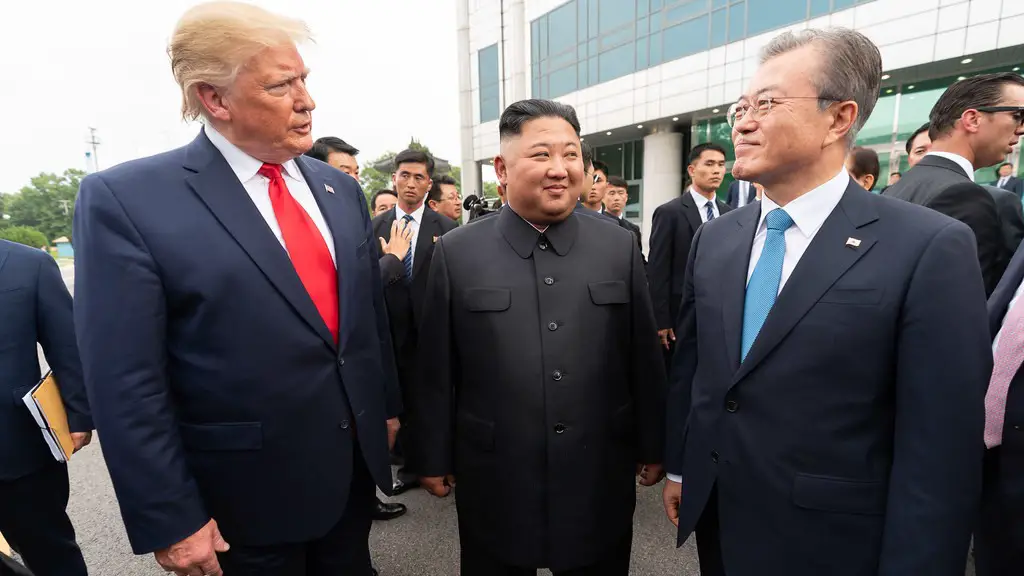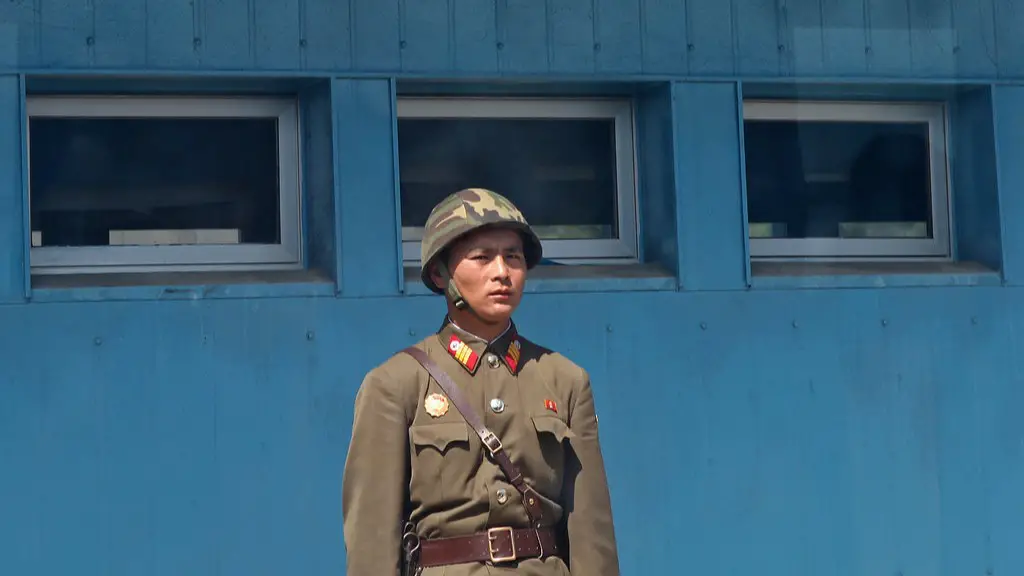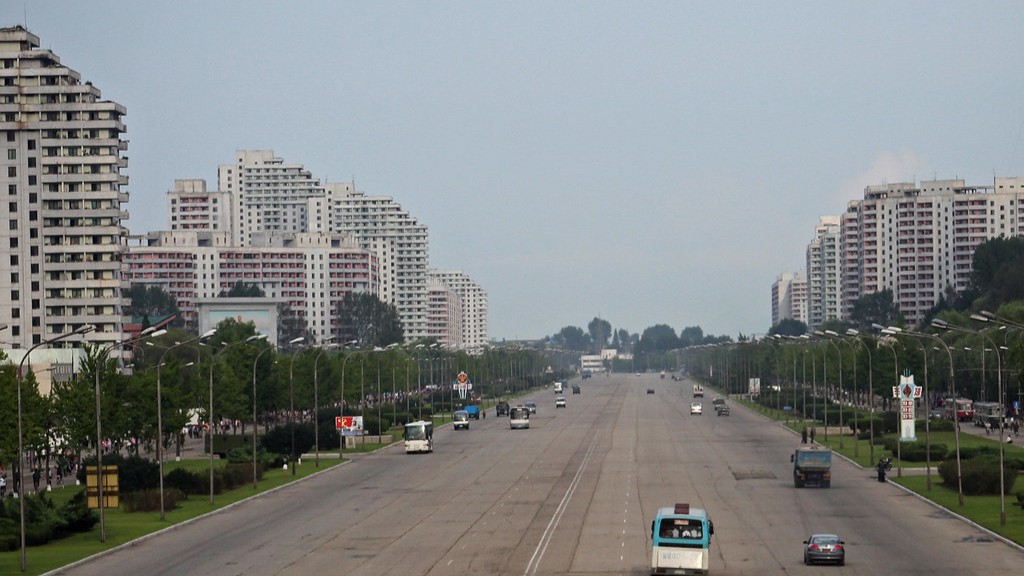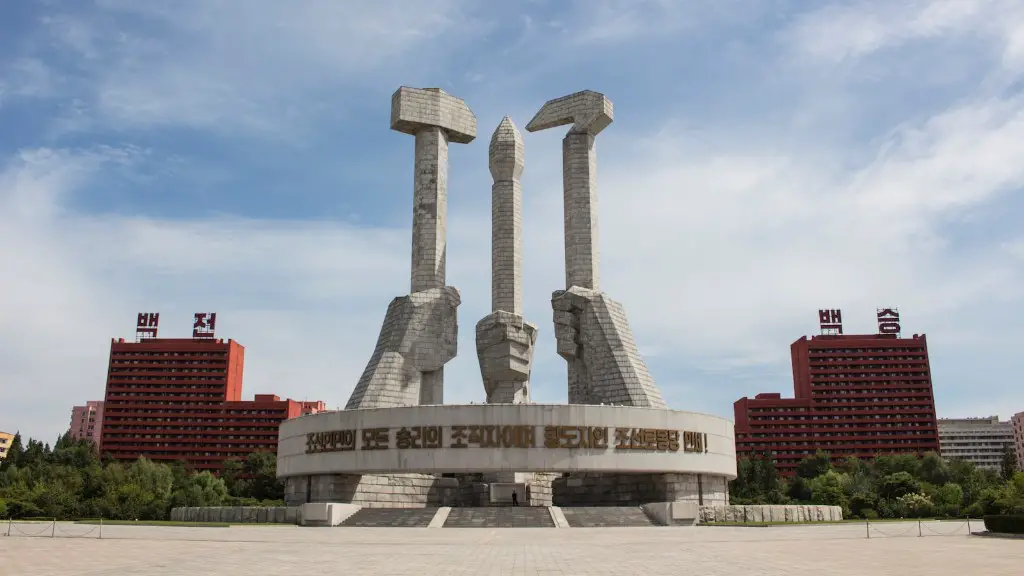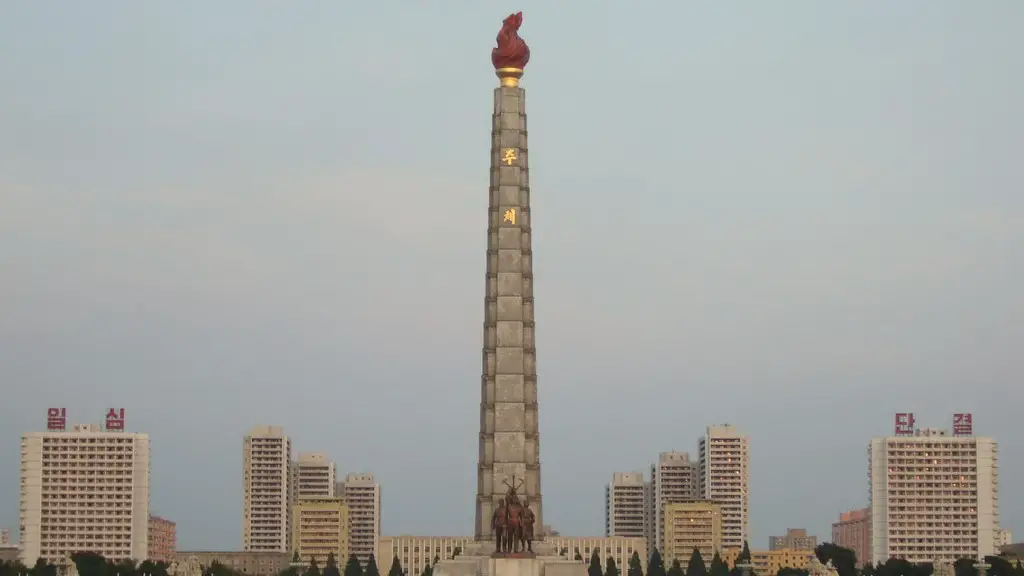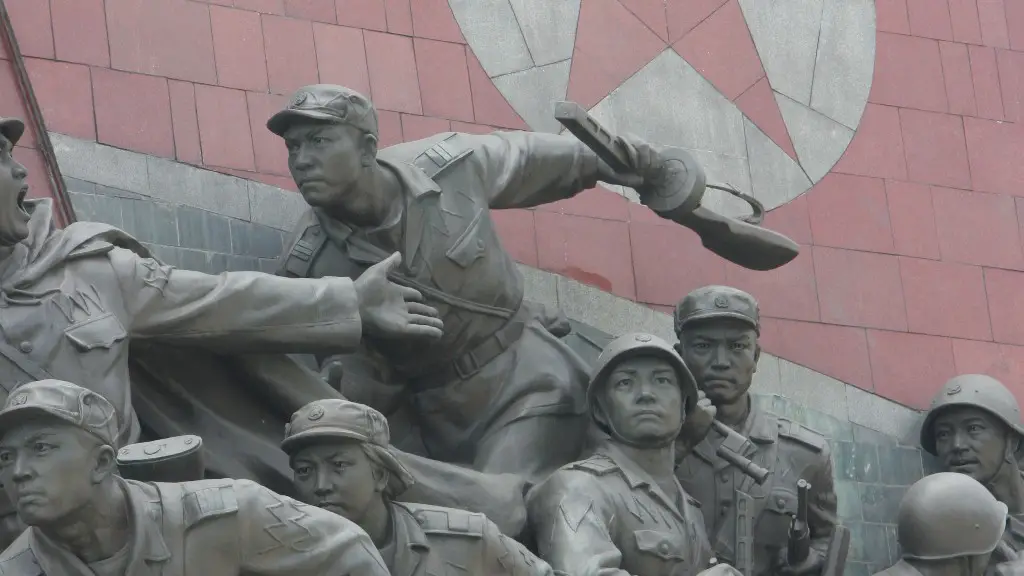North Korea became a nuclear power in 2006 when it conducted its first underground nuclear detonation. The country’s nuclear ambitions date back to the start of the Cold War; North Korea first expressed interest in nuclear technology in the 1950s, and its nuclear programme has developed significantly since then. However, the development of North Korea’s nuclear programme has been a source of great international concern. In 2006, the UN Security Council passed a resolution condemning the North Korean nuclear tests, and the United Nations has imposed numerous sanctions against the country in an attempt to disarm it.
North Korea’s nuclear capabilities today are of great concern to the international community. The country has the potential to produce a significant amount of plutonium and highly enriched uranium, and it is estimated that it has enough fissile material for at least ten nuclear weapons. In addition, North Korea has conducted several missile tests in recent years, demonstrating its ability to deliver a nuclear weapon at long range.
The issue of North Korea’s nuclear capabilities is one of the most pressing international security issues facing the world today. While talks between the U.S. and North Korea have recently resumed, progress has been slow and the situation is still highly volatile.
Experts suggest that the key to resolving the situation lies in a comprehensive approach to disarmament and diplomacy. For example, the United States and South Korea have been engaged in a diplomatic process of engagement, including offering economic aid and other incentives in exchange for greater transparency in North Korean nuclear activities.
The international community must continue to put pressure on North Korea to cease its nuclear weapons program and comply with international law. In addition, it is important to continue to support efforts to improve the relationship between North Korea and its neighbours, as this could help create a more conducive environment for negotiations.
At the same time, it is important to look beyond the immediate diplomatic and security concerns, and address the underlying issues that have contributed to North Korea’s desire to acquire nuclear weapons in the first place. This includes addressing the economic and social concerns of North Koreans as well as addressing the regional security dynamics that have been at the heart of the current crisis.
Power Struggles in the Region
North Korea’s nuclear ambitions have their root in power struggles in the region and beyond. The recent tensions between the US and North Korea are nothing new and the two countries have been at odds for decades. North Korea’s pursuit of a nuclear capability is largely a response to the perceived threat of U.S. military action against it. In the eyes of North Korean leadership, the possession of nuclear weapons is necessary to ensure the country’s survival.
The North Korean nuclear programme exists in the context of a number of power struggles in the region and beyond. The presence of nuclear weapons in North Korea heightens tensions in the already volatile region and increases the risk of conflict. In addition, North Korea’s nuclear weapons programme has implications for the international community as it undermines the global non-proliferation regime and increases the risk of nuclear proliferation.
For these reasons, it is essential that the international community continues to pressure North Korea to abandon its nuclear weapons programme and refrain from further nuclear tests. At the same time, any diplomatic solutions must take into account the security concerns of all sides in the region and beyond.
Economic Sanctions and Diplomatic Efforts
The international community has imposed various economic sanctions on North Korea in an attempt to persuade it to abandon its nuclear programme. These sanctions have had some success in curbing North Korea’s nuclear activities but ultimately have not been effective in persuading North Korea to abandon its nuclear ambitions.
In addition to economic sanctions, the international community has pursued talks with North Korea to try to persuade it to abandon its nuclear ambitions. This has been made difficult by the fact that North Korea has been unwilling to accept outside inspection of its nuclear programme and has insisted that any negotiations must grant it full recognition as a nuclear power.
The stalemate over North Korea’s nuclear status has continued for several decades, and recent talks have made little progress. It is unclear what the future holds for North Korea, but it is clear that the international community must continue to seek diplomatic solutions to this vexing problem.
The Impact of North Korea’s Nuclear Status
The consequences of North Korea’s nuclear status extend beyond the security implications. The country’s possession of nuclear weapons has had severe economic and social implications, particularly for the North Korean people. North Korea has been subject to multiple rounds of sanctions, which have hindered its already struggling economy and have hampered its ability to provide basic public services to its people. Additionally, the North Korean government has devoted significant resources to developing its nuclear programme, which has had the effect of diverting resources away from addressing the country’s economic and social troubles.
North Korea’s nuclear weapons also have had political implications, as the country’s territory serves as a source of political leverage in the region. The country’s nuclear-armed status has enabled it to act as a spoiler against any attempts at a diplomatic resolution to the conflict between the two Koreas. This has further increased the tensions in the region, making any progress towards peace elusive.
The impact of North Korea’s nuclear status is thus far reaching and profound. It is essential that the international community continues to seek a diplomatic solution to this crisis and work towards reducing the risk of nuclear proliferation in the region and beyond.
Humanitarian Consequences of the Conflict
In addition to the political and security implications of North Korea’s nuclear status, the conflict has had serious humanitarian consequences. North Koreans have borne the brunt of the conflict, deprived of basic rights and facing an increasingly precarious economic situation, worsened by sanctions and the diversion of resources to military projects. As a result, living standards in North Korea have drastically declined, and millions of people face poverty and hunger.
The conflict has also had repercussions outside of North Korea. South Koreans and other regional actors have been adversely affected by the heightened tensions in the region, as well as by the economic sanctions imposed against North Korea. Millions of refugees have fled the region, creating a global humanitarian crisis.
It is essential that the international community continues to focus on addressing the humanitarian aspects of the conflict. In addition to seeking a diplomatic solution, it is essential to address the economic situation in North Korea and support efforts to improve the rights and living standards of the North Korean people.
The Road Ahead
As North Korea continues to develop its nuclear programme, it is essential that the international community remains diligent in seeking a diplomatic solution to the crisis. While the prospects for a resolution are uncertain, it is essential that the international community continue to pursue dialogue and engagement with North Korea while at the same time continuing to exert pressure in order to discourage further nuclear testing.
At the same time, the international community must not forget the suffering of the North Korean people and must focus on providing economic and social support to North Koreans. Only through a comprehensive approach of diplomacy, economic aid and the promotion of human rights can the crisis in North Korea be resolved.
